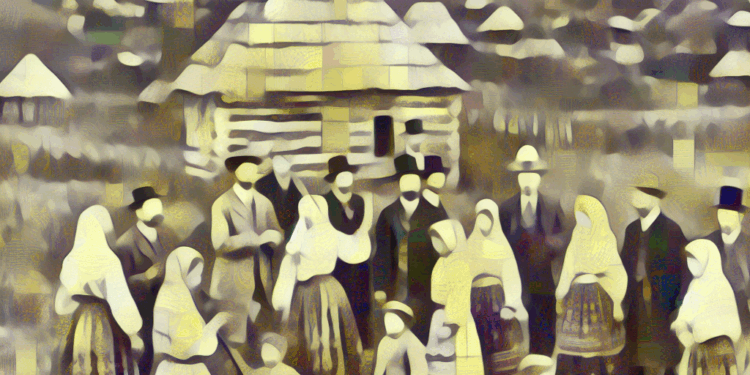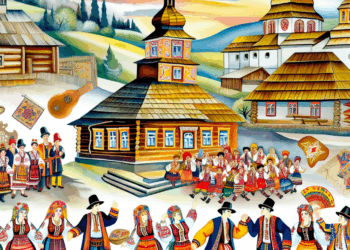Introduction
The history of Bukovyna is saturated with various events and personalities that left a significant trace in the culture and social life of the region. One of the brightest figures of this region is Edward Stanislavovich Kgirnik, an outstanding figure of science and culture, who left a vivid trace in the history of Chernivtsi and the whole Bukovina.
Biographical data
Edward Kgirnik was born in 1890 in a village on the border of modern Ukraine and Romania. He came from a Ukrainian family, which in many ways predetermined his life path and interest in the culture of his native land. After receiving his primary education at a local school, he continued his studies at a gymnasium and then entered Lviv University, where he studied philology and history. Kgirnik completed his studies in 1912, after which his career developed rapidly.
Major achievements
Edward Kgirnik is known as a writer, scientist and public figure. He was actively engaged in the study and popularisation of Bukovinian culture, its language and history. In the 1920s he founded the literary society “Our Bukovina”, which aimed to collect, preserve and continue the traditions of local literature and art.
In his scientific activity, Kgirnik emphasised the study of Bukovinian folklore, its ethnography and linguistic diversity. His works became the basis for future researchers, and today they are regarded as important sources of information about the culture of this region. Kgirnik collected many folk tales, legends and legends, which were later published in several collections.
In addition, he actively participated in the political life of Bukovina. In the 1930s, amid growing nationalist movements, Kgirnyk became one of the leaders of the movement to preserve Ukrainian identity in the region. He advocated for the rights of local residents, represented their interests on various platforms, and sought to integrate Ukrainian culture into the multinational society of Bukovyna.
The context of the era
The time in which Kgirnyk lived and worked was saturated with complex historical changes. Bukovina was for a long time under the rule of various empires, including Austria-Hungary and Romania. This led to the region becoming a “cultural cauldron” where different nationalities – Ukrainians, Romanians, Jews, Poles and Ruthenians – coexisted. Each of these peoples contributed to the cultural diversity of the region.
After the First World War and the collapse of the Austro-Hungarian Empire, Bukovina was annexed to Romania. This period was characterised by growing demands from the Ukrainian population for recognition of their rights and a desire to preserve their culture. In this context, Kgirnik’s work was particularly important, as he not only studied and preserved the heritage himself, but also inspired the younger generation to do so.
Impact on the region
Edward Kgirnik’s work had a significant impact on the development of Ukrainian culture in Bukovina. His literary and folklore research helped to preserve the uniqueness of Bukovyna culture and raise it to a worthy level in the Ukrainian cultural context. Thanks to this, the material he accumulated became the basis for the following researchers.
Kgirnyk also initiated the creation of cultural events that brought together writers, artists and musicians. These meetings facilitated the exchange of experiences and support for Ukrainian art, which was especially important in the context of Bukovyna’s multicultural society.
In the 1940s, when Bukovyna came under Soviet control after World War II, many of Kgirnik’s ideas and developments were criticised, and he himself experienced periods of arrest and pressure. Despite this, his works did not lose their relevance and were reinterpreted in the face of new realities.
Conclusion
Edward Stanislavovich Kgirnik is not only an outstanding personality of Bukovina, but also a symbol of the struggle for cultural identity and preservation of historical heritage. His activities left a deep mark on the culture of the region and continue to inspire contemporary researchers and cultural figures. Kgirnik became a bridge between cultures, helping to build dialogue and mutual understanding among the peoples of Bukovina.
The cultural heritage left by Edward Kgirnik is invaluable for future generations and serves as an important reference point in preserving the unique history and identity of this region. His life and work remind us how important it is to appreciate and preserve our culture in an ever-changing world.








